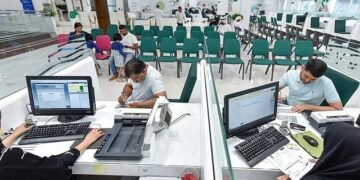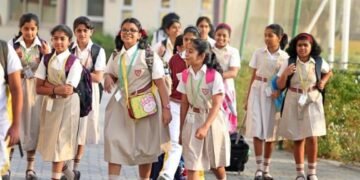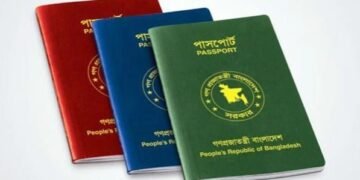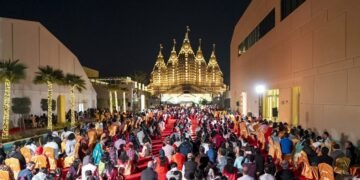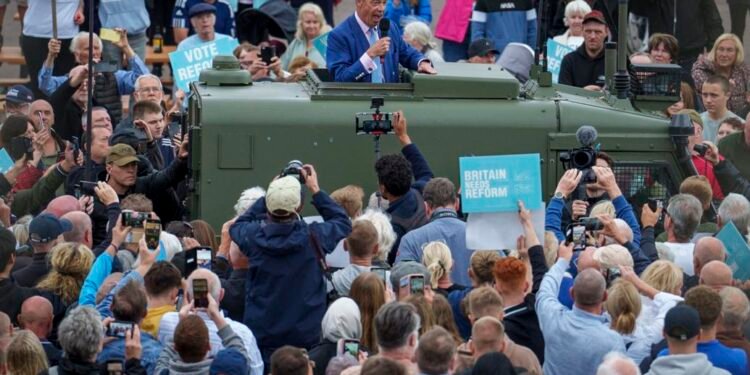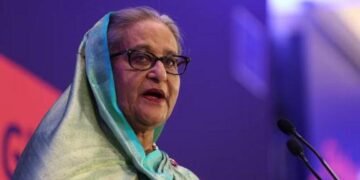For the first time this year, British citizens who have lived outside the country for more than 15 years will be eligible to vote as well.
Here are some of the key numbers as UK voters go to the polls Thursday in a general election predicted to see the ruling Conservatives dumped out of office after 14 years.
650 seats
The number of seats up for grabs across England, Wales, Scotland and Northern Ireland. A party needs to secure 326 seats to have a majority in parliament.
4,515 candidates
The total number of candidates from 98 different political parties — a record. Of them, 459 are independents and 30 percent are women.
AFP also counted at least 29 joke candidates, including 22 running for the “Official Monster Raving Loony Party”.
The most common name among candidates is David, accounting for over 100 candidates, according to the Electoral Reform Society.
The youngest candidates are 18-year-olds Pedro Da Conceicao and Adam Wayne Joseph Gillman, with the oldest being 86-year-old John Hugh Morris.
And a new national fault line has emerged to rival the 52-48 per cent Brexit vote split, according to Democracy Club, which analyses election data.
It found a 52-48 per cent split in favour of non-chocolate over chocolate biscuits among candidates.
46 million voters
There were over 46 million voters registered in the UK in December 2023, according to government data.
This number is likely to have risen closer to the election, which was called on May .
For the first time this year, British citizens who have lived outside the country for more than 15 years will be eligible to vote as well.
40,000 polling stations
There are around 40,000 polling stations across the country, according to Democracy Club.
Any space can be used as a polling station as long as it meets certain criteria like being accessible for people with disabilities.
Several pubs are used, with this year’s election also promising polling at a ship, a beehive centre, a cricket field and a fossil museum among others.
15 Tory ministers under threat
At least 15 Conservative candidates who are ministers in Prime Minister Rishi Sunak’s cabinet have been projected to lose their seats in YouGov polling.
Among them are finance secretary Jeremy Hunt, defence secretary Grant Shapps and Commons leader Penny Mordaunt.
That means just under half of Sunak’s cabinet members face the chop, with 27 ministers gunning for re-election — not including Sunak himself.
£13 million in donations
In the first three weeks of election campaigning, from May 30 to June 19, around £13 million ($16.4 million) was donated to political parties, according to Electoral Commission data.
The Conservatives received around £1.2 million, while Labour received a whopping £8.4 million.
Seven water stunts
Ed Davey, leader of the smaller opposition Liberal Democrats, has taken part in seven campaign stunts involving water.
On Windermere, England’s biggest lake, he fell off a paddleboard into the water five times in 15 minutes.
Davey, who has taken part in a water aerobics class, sped down water slides and rode an aqua-bike, is promising to clean up Britain’s polluted waterways.
12 per cent trust
Only 12 per cent of Britons said they trusted political parties in a government survey from last year, down from 20 per cent in 2022.
Twenty-seven per cent said they trusted the government, with less than a quarter trusting the House of Commons.
Just under half said they had little or no trust in their own ability to participate in politics.
Levels of public distrust can be used as an indicator for turnout on election day, with lower trust in politicians often translating into lower turnout.
Turnout was 67.3 per cent at the last election in 2019.





















